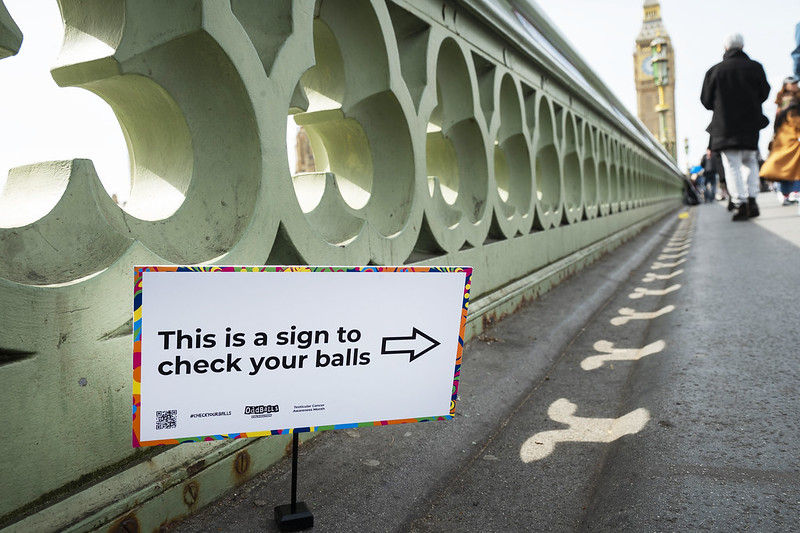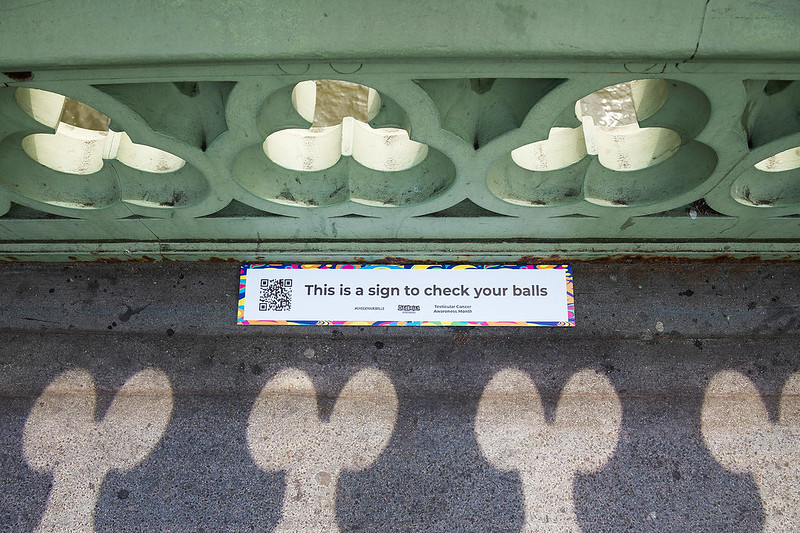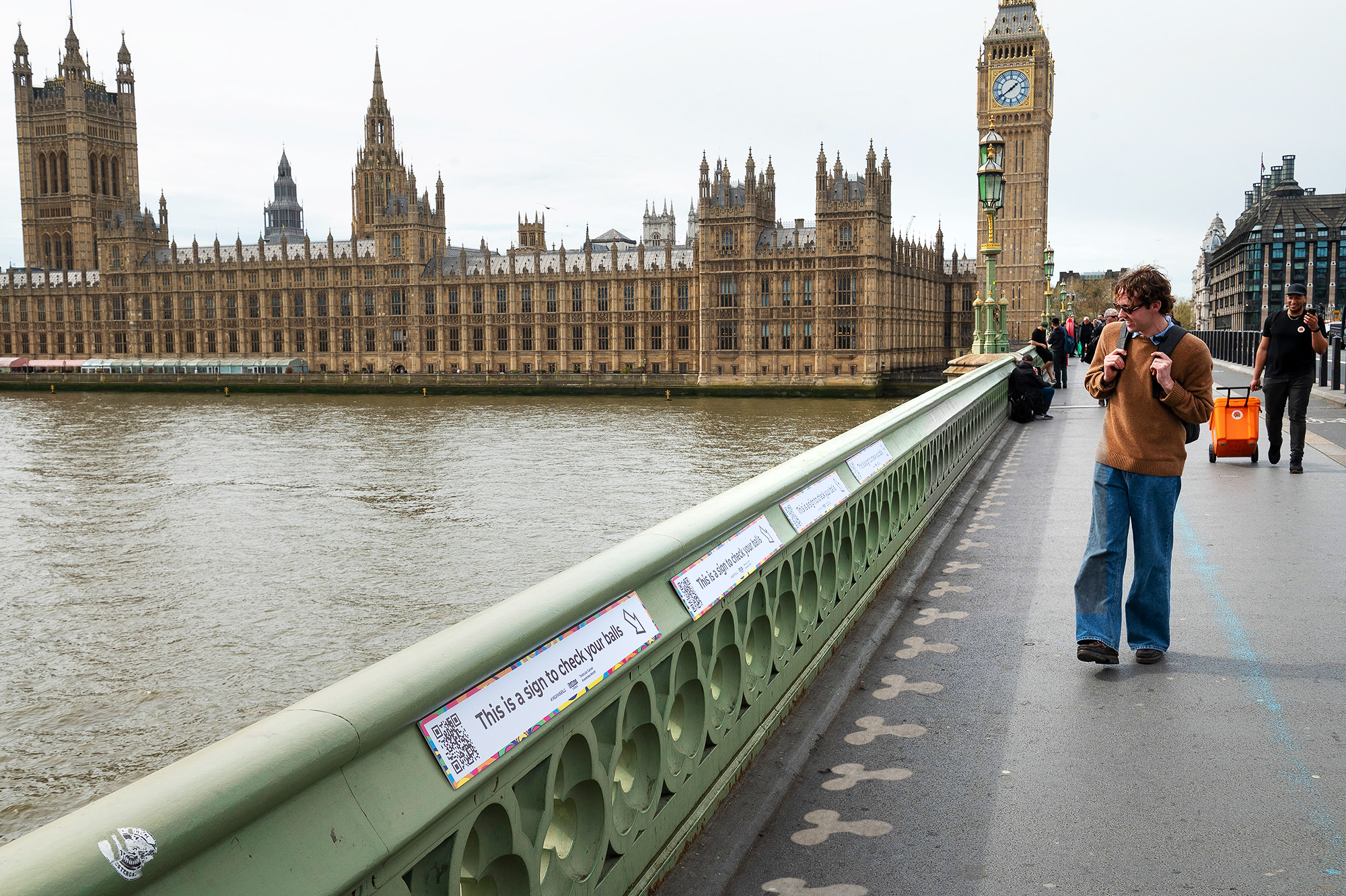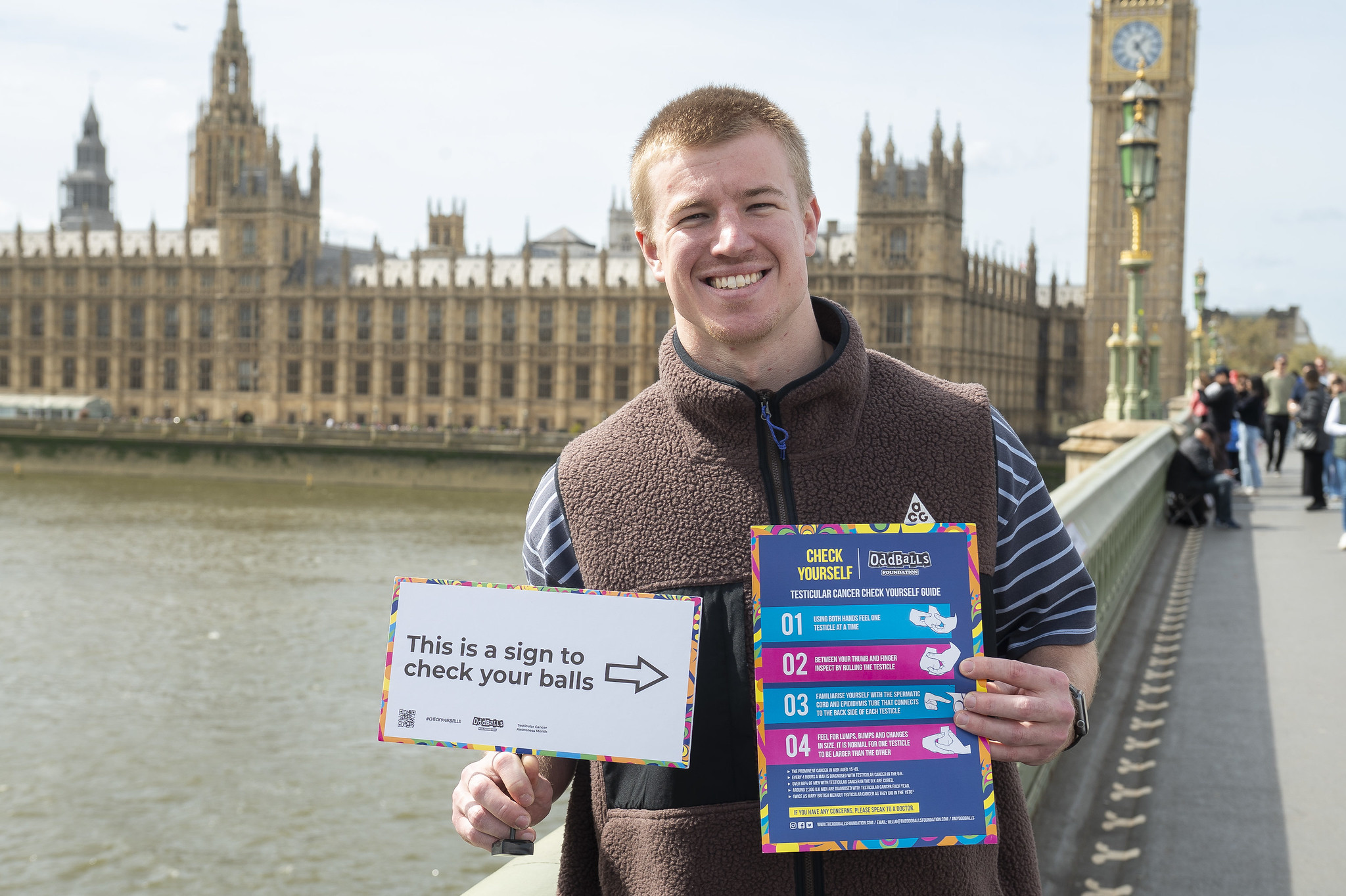Article
April 17, 2024
Westminster Bridge ‘design flaw’ leveraged to raise awareness of Testicular Cancer.
A testicular cancer charity has turned London’s Westminster Bridge into a head-turning installation to promote Testicular Cancer Awareness Month this April.
An oddity in the 162-year-old bridge’s architectural design has been harnessed by the Oddballs Foundation to communicate a powerful message to men, ‘check your balls’.
When the sun shines through the apertures in the side of the bridge – hundreds of penis-shaped silhouettes appear along the pavement.
497 of them to be exact.
The shadows gradually evolve as the sun traverses the sky. This natural progression causes the shadows to extend from the trefoil-shaped cut-outs evolving into phallic shapes.
COOH agency St Marks Studios devised and executed the campaign for the charity.
The agency installed banners and signs across the 250-metre bridge which read ‘This is a sign to check your balls.’

A QR code on the posters directs pedestrians to the foundation’s self-check page where they can learn how to spot symptoms.
The head-turning campaign encourages men to check their testicles for signs of testicular cancer and is supported with a national PR campaign from Taylor Herring.

The banners are visible to the thousands of pedestrians that cross the bridge every day including dozens of MP’s enroute to work at the Houses of Parliament.
Testicular Cancer is the most common type of cancer to affect men between the ages of 15 – 49. Around 2,300 men are diagnosed with testicular cancer each year in the UK – six every day.

Yet new research from The OddBalls Foundation reveals that only 18.5% of British men check themselves regularly.
One in five say they would be too embarrassed to go to a doctor if they discovered a lump. Testicular Cancer is more prevalent in younger men aged 18-25 and is on the rise. Diagnosed cases have more than doubled over the past 3 decades.

Kieran Kelly, Foundation Manager at The OddBalls Foundation said; “We know that testicular cancer is one of the most treatable types of cancer – and is much more effective when started early. But shockingly just 18.5% of men regularly check themselves for abnormalities. We’ve had such a great reaction to the campaign, with hundreds of guys stopping and downloading our check yourself guide.”